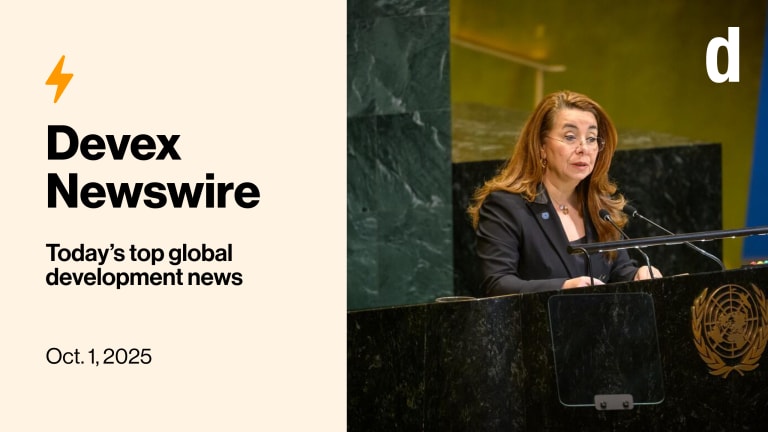The people of Haiti have been beset not just by natural disasters and gang violence, but by cholera, hunger, and corruption too. Billions in aid have flowed to the Caribbean nation — but some officials tell us there's now less appetite to help.
Also in today’s edition: It’s been weeks since the dreadful earthquake struck Turkey and Syria. We look at what the nations need — and what they’re getting — in terms of funding and humanitarian aid.
+ Join us for the next Devex Leader Roundtable event: The women CEOs edition, happening on March 7. This event is exclusively for Devex Pro members. Not yet a Pro member? Start your 15-day free trial now.
Printing articles to share with others is a breach of our terms and conditions and copyright policy. Please use the sharing options on the left side of the article. Devex Pro members may share up to 10 articles per month using the Pro share tool ( ).








